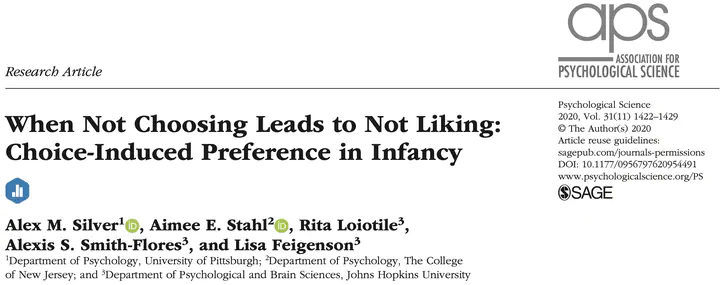When Not Choosing Leads to Not Liking Choice-Induced Preference in Infancy

Abstract
The question of how people’s preferences are shaped by their choices has generated decades of research. In a classic example, work on cognitive dissonance has found that observers who must choose between two equally attractive options subsequently avoid the unchosen option, suggesting that not choosing the item led them to like it less. However, almost all of the research on such choice-induced preference focuses on adults, leaving open the question of how much experience is necessary for its emergence. Here, we examined the developmental roots of this phenomenon in preverbal infants (N = 189). In a series of seven experiments using a free-choice paradigm, we found that infants experienced choice-induced preference change similar to adults’. Infants’ choice patterns reflected genuine preference change and not attraction to novelty or inherent attitudes toward the options. Hence, choice shapes preferences—even without extensive experience making decisions and without a well-developed self-concept.